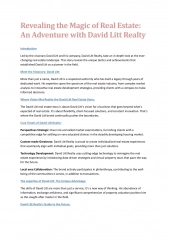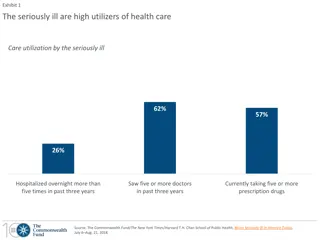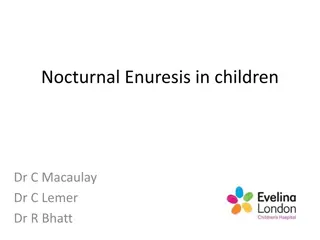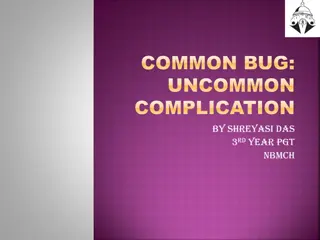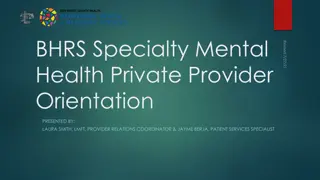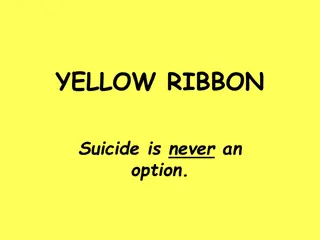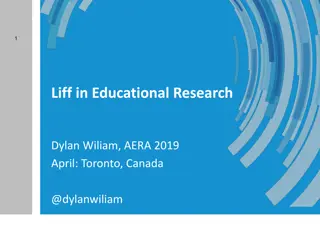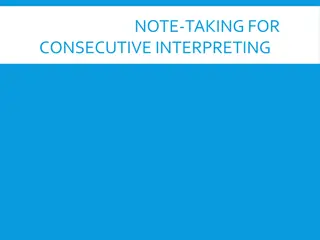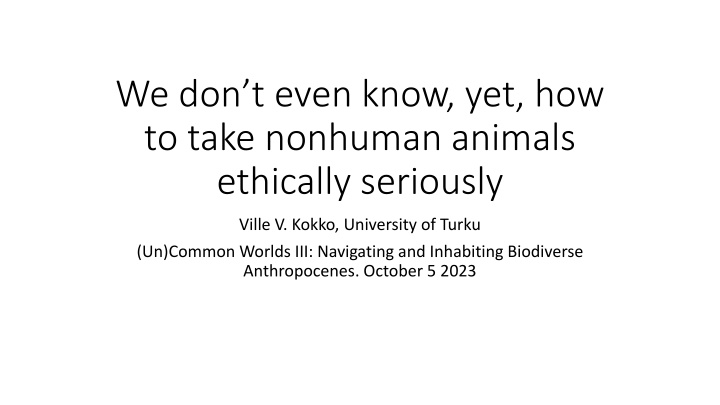
Ethical Considerations for Nonhuman Animals in Legal Rights Debates
Explore the complexities of proposing legal rights for nonhuman animals, including the challenges of defining "animal" and addressing criticisms like the slippery slope argument. Delve into the implications of granting rights to all animals and the moral considerations involved.
Download Presentation

Please find below an Image/Link to download the presentation.
The content on the website is provided AS IS for your information and personal use only. It may not be sold, licensed, or shared on other websites without obtaining consent from the author. If you encounter any issues during the download, it is possible that the publisher has removed the file from their server.
You are allowed to download the files provided on this website for personal or commercial use, subject to the condition that they are used lawfully. All files are the property of their respective owners.
The content on the website is provided AS IS for your information and personal use only. It may not be sold, licensed, or shared on other websites without obtaining consent from the author.
E N D
Presentation Transcript
We dont even know, yet, how to take nonhuman animals ethically seriously Ville V. Kokko, University of Turku (Un)Common Worlds III: Navigating and Inhabiting Biodiverse Anthropocenes. October 5 2023
Background A citizens initiative proposing that the rights of animals be added to the Finnish constitution gathered the requisite 50,000 signatures in August and is set to be discussed by the Parliament after the signatures have been verified. The proposed additions to the constitution are essentially the same as when the Finnish Animal Rights Lawyers association originally formulated this proposal in 2020. In 2020, the association also asked for unofficial feedback on the proposal from philosophy students at the university of Turku. Though I was not an undergraduate student, I also asked to join. Our feedback does not seem to have had any effect on the version proposed in the citizens initiative, maybe because it would have been too difficult to implement.
Central idea of the proposal Granting all animals rights as individuals instead of their being treated as objects or property. Animal is never defined, but it implicitly excludes humans and seems to include anything else in the kingdom Animalia. Unlike some related proposals, doesn t only focus on certain animals like great apes.
Slippery slope criticisms Unsurprisingly for something so contradicting the status quo, the proposal evoked some contrived criticisms. Specifically important here, claims that it would lead to a slippery slope to granting plants and bacteria rights. This is easily answered by noting that all non-human animals are being included because they are presumed to at least possibly have sentience, a sensible criterion of moral patienthood.
A better slippery slope criticism However, a similar criticism that does apply can be formulated easily: the new rights logically apply equally much to mosquitoes as to, say, cows. Insects comprise 75% of known species of animals, so in a sense, to declare rights for all animals without distinctions is to talk primarily about insects. The fact that this isn t accounted for in any way seems to reflect an explicit anti-bias not excluding any species but also an implicit bias not thinking about bugs when imagining the consequences. It might even be morally right to say that we have to have very good reasons if we kill mosquitoes maybe if they spread diseases, but not because they can cause us to itch all over and keep us awake. However, it would be very difficult to get people to suddenly take the rights of mosquitoes seriously, even if we could have done that with cows. This way, in a different way to look at it, the actual letter of the law would protect cows only to the extent that it does mosquitoes.
A better slippery slope criticism One easy step to change this would be to make distinctions between animals based on their mental capacities etc. This has repeatedly been used as an excuse to put humans above others, often putting all others categorically beneath us, but it could also be used in impartial and genuinely ethical reasoning. It might also work to make distinctions between animals as moral patients based on the practical possibility of honouring them as such. Ought implies can, and it s better to do what we can than do nothing.
However, theres a deeper reason why just starting from sentientism as the basis of moral worth can t act as the basis of the whole new moral or legal system.
Too demanding or and not demanding enough Whereas these logical consequences of the proposal are too strict to be practically applicable at least in the immediate future, some of the specifics mentioned in it are not strict enough by its own logic. E.g. construction work may kill animals, but still allowed if it s necessary for humans. Just how necessary would it have to be to be worth it? Are we going to consider an alternative for almost all construction based on this? Not in practice if it s only described by necessary . If we were really considering this from each animal s individual value, that would be like planning operations where many innocent, uninvolved people are going to be killed. Something like this does get done in war, but that s not a great standard to aspire to.
Unprecedented and unnatural There are very good grounds for saying sentience by itself implies moral value. However, to begin to treat every sentient being as individually valuable is to practically seek to overturn the whole order of the living world.
Unprecedented For a start, human society is currently very much built around exploiting huge amounts of nonhuman animals and ignoring most others. To change this is going to be a long and complicated process even if there were no resistance. But that s just the smaller problem.
Before I say the next thing, I will point out that what is natural doesnt necessarily have anything to do with what is good or right, especially morally.
Unnatural I can hardly think of anything more unnatural than every sentient being s value being given moral consideration. It does have a natural side too, because morality is partly natural, and its tendency or demand to be universalised is also natural in some sense. But the biosphere is an amoral system full of predation and random suffering. The lack of regard for every sentient thing s welfare is built in. Humans, too, are being natural when they exploit other beings, even if aspects of it like the scale get pretty unnatural in other ways.
Morality is still universal The demand to take every sentient being seriously is still very well grounded, though. It would be an understandable compromise to draw the line between animals that we directly interact with and those that just live and suffer in the wild without our interference. But eventually, we re going to have to face the meaning of their suffering, too. But it s true that we need to get unnatural enough that we don t exploit other animals directly like they were just things, and this is probably more urgent. (It might even be good practice.)
Problems with universalising ethical regard We can t just do it by declaring that we re going to start treating every (possibly) sentient being as having value, though. That s how the proposal ends up having too strict implications and too loose explicit corollaries. Here are some specific problems
Problems with universalising ethical regard 1. How to actually balance human vs. nonhuman interests 2. Different kinds of moral patients 3. Lack of community with the other party 4. Ecology vs. individual value 5. Intractability of natural evil
How to actually balance human vs. nonhuman interests Our current standard ways of viewing this question are so based on seeing human needs as overriding all interests of other animals that it will be hard to overcome this bias. Even the Animal Rights Lawyers proposal can t quite shake it off despite already being so radical it s hard to imagine implementing it. Part of this seems to require coming to a sensible rather than the traditional extremely anthropocentric view of how human interests compare to those of other species. On the other hand, the importance of learning by practice as opposed to just theorising must not be understated. (More on that later.)
Different kinds of moral patients We re almost certainly going to need to make judgements about the moral values of different sentient beings based on their more specific properties. A broader version of the question of human vs. other animal value. Seeing animals as being all the same (especially in some ways that only humans are not) is an anthropocentric bias. It usually devalues them, but it misrepresents reality even if they are seen as all valuable. The more difficult thing about this will probably be getting rid of bias again so as to be able to think about this in a way that reflects the concrete and moral reality.
Lack of community as a limiting factor Much of how we (at least can) treat other people morally is dependent on being able to communicate with them express our interests and hear theirs, build relationships, make agreements, promises, trade. The possibilities to do these things with nonhumans seem very limited in comparison, apparently both because we aren t as good at it and because they may be to various degrees cognitively incapable of processing such concepts even in an ideal case. This may force us to continue to use a more paternalistic and unequal mode of relating to other animals than what we ideally have with each other. However, since we ve barely even tried this so far and sometimes when we have, it has kind of worked we don t know what we may be able to do in this respect.
Ecology vs. individual value At the same time as we re doing all this, we should also be looking out for the biosphere and local ecosystems. The interests of individual nonhuman animals may conflict with these aims, somewhat like the interests of human animals (but probably more death-or-life on average). Even if it makes sense in a serious, unbiased ethical calculus to shoot some deer to keep their population down, can we even contemplate that if we regard them as being as close to humans in moral value as they presumably warrant?
Intractability of natural evil If (since) we should take the value of all sentient individuals seriously, how can we even begin to combine that with so much as awareness of all the suffering in nature? Let alone apply this in practice? How much can we do to improve the lot of wild animals, and where do we have to draw a line where to stop? Again, we haven t even been considering this seriously this time, not even most people who take the value of animals otherwise seriously.
Intractability of natural evil If we could somehow remove suffering from the natural world, or even much of it, that would also imply bringing the natural world as we know it to an end. Though if it didn t mean destroying everything, there would still have to be an ecosystem, just a different kind of one. Even without going to these extremes, we can t even see from here where this would all go because, again, it s both unnatural and never been seriously tried.
Does this whole thing even make sense as a moral project? Actually, that s exactly how it does make sense.
Morality as essentially unfolding In general, not just here, there are severe limits to a priori moral theories. The world keeps facing us with new moral situations with new combinations of factors. Old, a priori moral theories can t cover these entirely. A very general example: the justification of utilitarian values may be completely valid, yet we still need other forms of ethics (not attempting to maximise utility for each act) to actually serve them. Extending recognition of moral value to nonhumans may be the most radical challenge of this sort yet, but it s also the same challenge we have always faced and always will face. We will also learn what the limitations, possibilities and duties we face really are as we work towards our moral goal.
What next? Let s keep pushing for animal rights and the recognition of animal moral value as hard as we can, including projects that are now radical but are still close enough for us to conceive. That way, we can keep gradually unbuilding the old and rebuilding the new while learning about the new ideals we should build. As for the Animal Rights Lawyers proposal, I imagine it was probably going to be too radical regardless of the philosophical and potentially practical problems I ve identified here, but at least it s moving the conversation forward.
Thank you Thanks also to Tilda Nerg, Teemu Luukkonen, Tiia Topinoja and Jari K rkk inen for discussions on the topic in 2020. I think the ideas here are mine, but they at least helped develop them, and some of them may actually be theirs.

